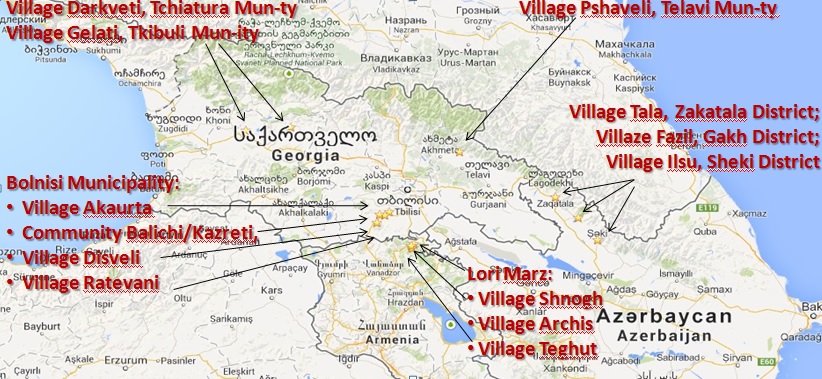Rural Women Councils (RWC)
Table of Contents
Definition
Rural Women Councils (RWCs) are local women’s groups in rural areas that primarily deal with environmental issues, natural resources and sustainable agricultural management, in order to ensure improved community and regional development.
Goals of RWCs
Goals of RWCs:
- Enhancement of rural women via awareness raising, mobilization and capacity building;
- Promotion of active involvement of local community, especially women and youth, in awareness raising on sustainable management of natural resources;
- Identification of community problems and contributions to their resolution;
- Establishment of inter-communal relations between various villages in the district, identifying their needs/problems and solutions for further development.
Activities of Rural Women Councils
Activities of Rural Women Councils include:
Public awareness raising
- Raising community awareness on integrated natural resource management;
- Promotion of environmental protection and ecological safety concept and practices;
- Supplying information materials to raise awareness of local community members on sustainable natural resources management and role of women;
Community mobilization
- Assessing of youth potential and supporting its development (via ecoclubs, environmental campaigns, rural projects);
- Support of women initiatives;
Education (tailor-made thematic trainings) and capacity building (trainings on organizational skills, project cycle management)
- Thematic training on integrated natural resources management and sustainable agriculture practices;
- Educating on civil rights to community members, and advocate for their fulfillment;
- Providing basic training on business for rural women and supporting the creation of small businesses;
- Providing non-formal education to improve the living conditions of rural women;
- Providing non-formal education to improve the living conditions of rural women;
- Providing trainings in new technologies (PC, internet) for community populations;
- Trainings for local media;
Community advocacy for local concerns
- Identifying of local environmental/agricultural concerns;
- Development of recommendations, projects and local action plans to solve the problems;
- Communication with local and central authorities and business sector;
- Organization of environmental campaigns and actions;
- Protecting the rights of women and young people living in the community;
- Communication with media and campaigning;
Networking and lobbying
- Search of partners for local initiatives sustainable livelihoods;
- Coalition building for solving of local issues;
- Multi-stakeholder meetings, roundtables, seminars and workshops;
- Petitions;
- Arranging meetings with relevant structures and organizations at the local and regional levels to solve existing problems.
RWCs principles
The principles of RWCs are:
- Voluntary participation;
- Partnership and networking;
- Team working;
- Inclusiveness and diversity;
- Creativeness;
- Positive approach.
RWCs in the South Caucasus
Caucasus Environmental NGO Network (CENN) has established 13 Rural Women Councils (RWCs) in Armenia, Azerbaijan and Georgia since 2008 comprising over 100 members:
Armenia
- Village Shnogh, Tumanyan sub-region, Lori Marz;
- Village Archis, Tumanyan sub-region, Lori Marz;
- Village Teghut, Lori Marz;
Azerbaijan
- Village Tala, Zakatala District;
- Villaze Fazil, Gakh District;
- Village Ilsu, Sheki District;
Georgia
Imereti region
- Village Darkveti, Tchiatura Municipality;
- Village Gelati, Tkibuli Municipality;
Kakheti region
- Village Pshaveli, Telavi Municipality;
Kvemo Kartli region
- Village Akaurta, Bolnisi Municipality;
- Community Balichi/Kazreti, Bolnisi Municipality;
- Village Disveli, Bolnisi Municipality;
- Village Ratevani, Bolnisi Municipality.
The RWCs have been very successful at the local level and are actively involved in community life. They are a leaders’ group that the local residents contact regarding various issues and to seek consultations. The local government frequently invites the RWCs to discuss various issues and participate in budget planning.
See also
Please add here links to other articles in WIkigender that are relevant to this one. What other WIkigender articles would interest the reader of your article?
References
Please add references in the text directly (footnotes).
External links
Please add here any links outside Wikigender that might be of interest to the reader of your article.



